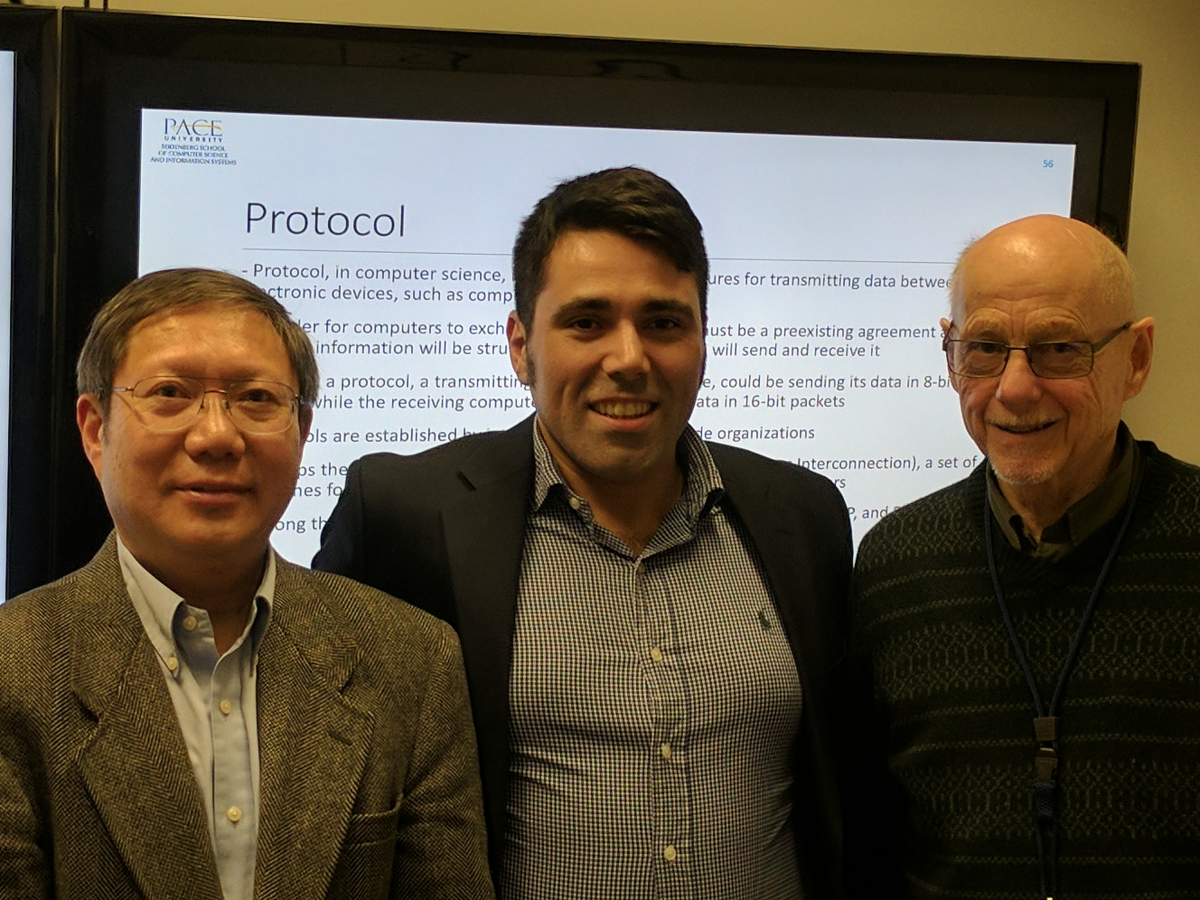We are delighted to share that Mohammad “Vahid” Vahidalizadehdizaj has freshly earned the title of “Dr.” following the successful defense of his PhD thesis!
A student of the PhD in Computer Science program, Vahid chose to explore security and privacy in e-commerce over mobile phones. This is an issue that requires continuous attention, and a very worthy one of doctoral level study.
Dr. Lixin Tao was the advisor for Vahid’s journey to doctorate. The committee was comprised of Dr. Charles Tappert and Dr. Mehdi Badii; Professor Avery Leider and fellow PhD candidate, Nikhil Saxena, were also present – and Professor Leider took several videos to document the moment!
“It was fun watching Vahid defend and defend his thesis against all comers,” said Prof. Leider.
Vahid is our second ever student to earn a PhD, joining Dr. Vinnie Monaco as one of our incredible PhD alums.
The new Dr. Vahidalizadehdizaj said: “I want to thank my mother and father for supporting me on this road. I want to thank Dean Jonathan Hill and Dr. Paul Benjamin for their guidance. I want to thank my advisor, Dr. Lixin Tao for his advice. I want to thank my wonderful committee members Dr. Charles Tappert and Dr. Badii for their wise comments and questions.”
Here’s the abstract of Vahid’s dissertation, “An Efficient Decentralized Mobile Payment Protocol With Improved Security and Privacy”:
The exponential growth of mobile devices makes them a suitable computing platform for electronic payment. However, there are serious challenges in e-commerce transactions, such as privacy protection, security, bandwidth limitations of mobile networks, and limited capabilities of mobile devices to handle excess or indirect computational time. The traditional e-commerce payment protocols that were originally designed to keep track of the traditional flows of data from desktop computers are vulnerable to attacks, and because they were not designed for mobile platforms, have excessive engineering overhead. In this thesis, a new private mobile payment protocol is introduced that is designed specifically for the mobile platform. It is based on a client-centric model that utilizes symmetric key operations. The protocol reduces the computational cost (the engineering overhead) of Diffie-Hellman key agreement protocol by using the algebra of logarithms instead of the algebra of exponents. The protocol achieves proper privacy protection for the payer by involving mobile network operators and generating temporary identities. It avoids replay attacks by using random time-stamp generated numbers.
Congratulations Dr. Vahid – we can’t wait to see where your new qualification takes you!


